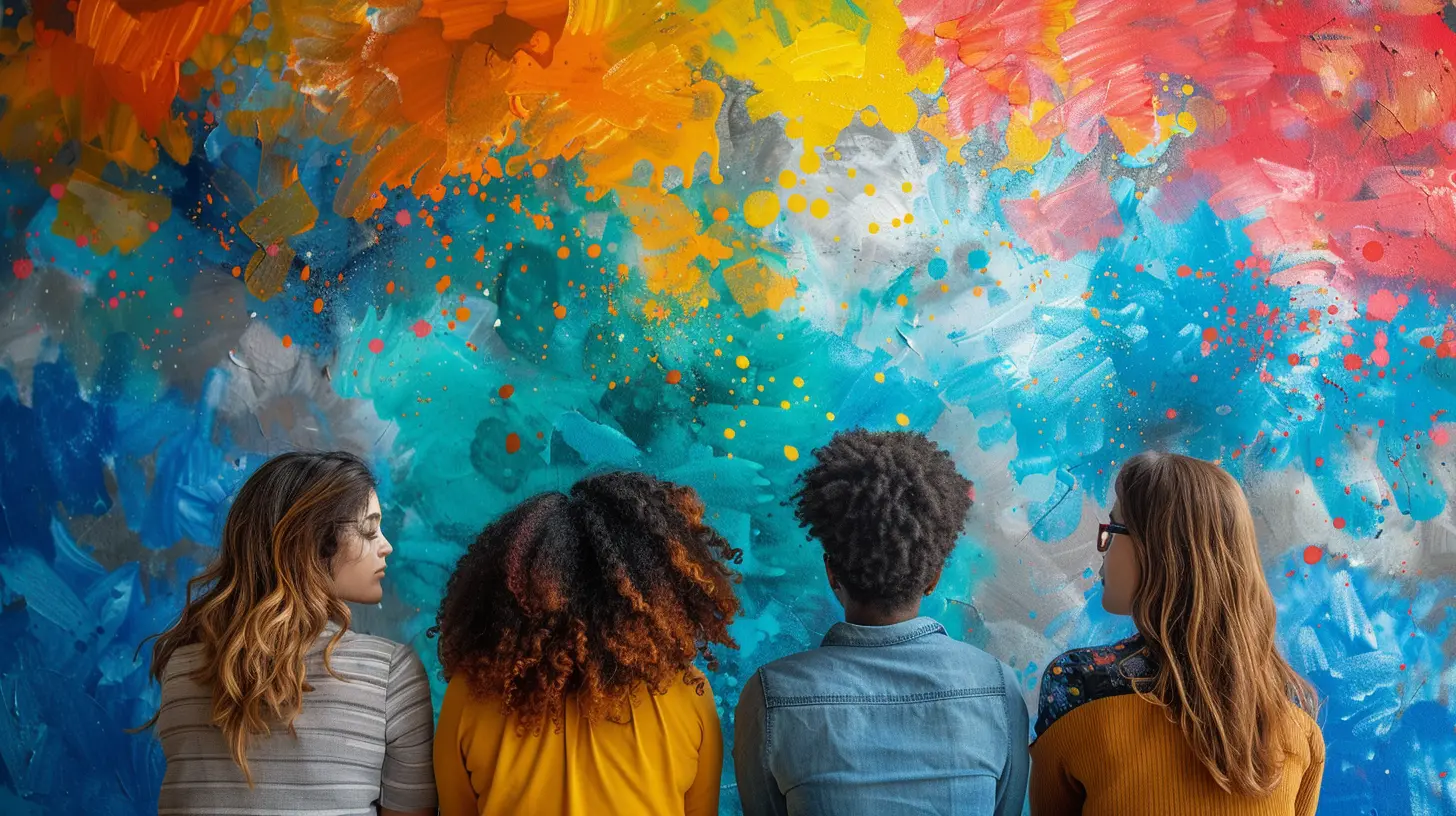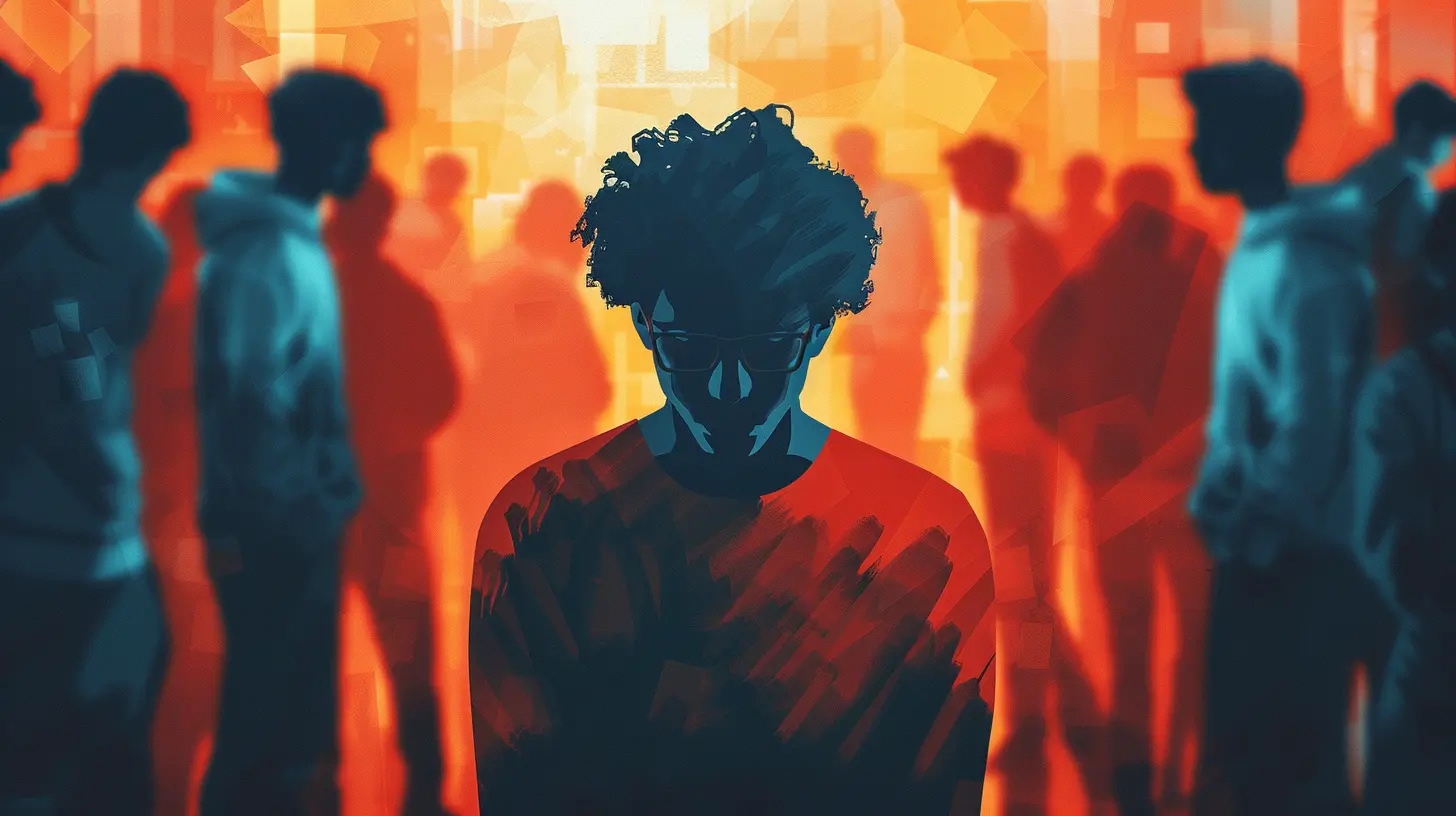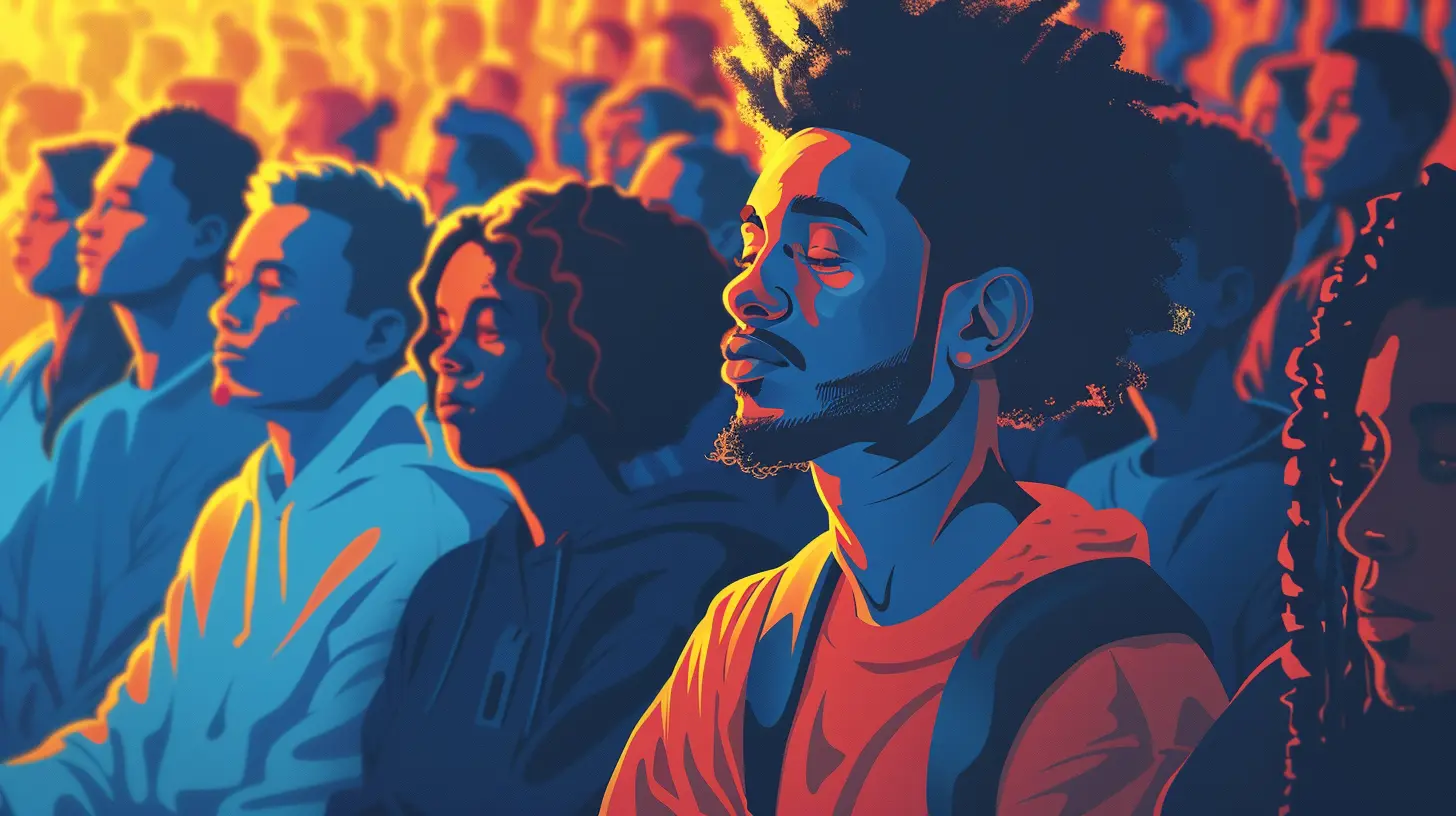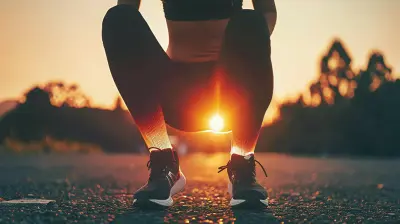Understanding and Managing Social Anxiety in Public Spaces
16 November 2025
Ever walked into a packed coffee shop, only to feel like every eyeball in the room swivelled straight at you? Like suddenly, you're on stage, and everyone's waiting for you to trip over a chair or mumble your drink order? If your answer is a sweaty "YES," then hey, you might be dealing with social anxiety—specifically, social anxiety in public spaces. And spoiler alert: you're not alone.
So pull up a chair (far from the center of attention, if you prefer), grab your favorite anxiety-soothing tea, and let’s chat. We’re diving deep into what this anxiety is, where it comes from, and most importantly, how to show it who’s boss.
What Exactly Is Social Anxiety?
Let’s cut to the chase. Social anxiety isn't just being “shy” or “nervous.” It’s more like your brain's alarm system going haywire during social situations—especially in public. Think of it as your inner critic on steroids.The Core of the Beast
Social anxiety disorder (SAD), as the pros call it, is a mental health condition where everyday interactions cause significant anxiety, self-consciousness, and embarrassment. Why? Because deep down, you fear being judged, looked at, or humiliated. Even if there’s no real danger, your mind screams “RUN!”Sneaky Symptoms
Social anxiety doesn’t always show up with flashy signs. Sometimes, it's subtle, like:- Avoiding eye contact (even with dogs)
- Overthinking your every move in a crowd
- Replaying conversations in your head like a bad movie
- Sweating, trembling, or feeling dizzy in public
- Feeling like you’re on display even when you're not
Yep, it can get pretty overwhelming. And when it happens in public spaces—like malls, buses, or even the dreaded grocery store checkout line—it can turn simple errands into emotional marathons.
Why Public Spaces Feel Like Enemy Territory
Sure, we all get a bit weirded out in crowded spaces sometimes. But for people with social anxiety, it's like walking into a gladiator arena—except instead of spears, you’re dodging imaginary judgment.All Eyes On Me (But Not Really)
Here's a quirky little truth: social anxiety tends to trick you into thinking you're the star of a reality show that no one actually watches. You feel like everyone’s noticing how your hands shake or how you said “hi” like a robot.But let’s get real—most people are too busy wondering if they left the stove on to even notice your “weird” behavior.
The Fear of Negative Evaluation
This is a fancy phrase for what truly fuels social anxiety: the fear that others will think poorly of you. You’re terrified of looking stupid, sounding strange, or just... not being perfect. That's a tall order for any human.
How Social Anxiety Impacts Daily Life
Let’s not sugarcoat it: social anxiety can be a relentless buzzkill. It creeps into job interviews, ruins parties, and even makes ordering fast food feel like a public performance.Missed Opportunities
How many times have you skipped a class presentation, dodged a friend’s invite, or avoided a networking event because of anxious thoughts? The cost of social anxiety isn’t just emotional—it’s real experiences slipping through your fingers.Isolation Nation
When public spaces feel like booby-trapped jungles, avoiding them becomes the go-to move. But too much isolation? That’s like emotional junk food. It might feel good short-term, but it’s not nutritious for your mental health.
The Science-Y Side (But Not Boring, Promise)
Let’s nerd out for a hot second (don’t worry, no test at the end). Social anxiety often springs from a combo platter of genetics, brain chemistry, and life experiences.The Brain’s False Alarms
Your amygdala—aka the brain’s “fear center”—can go into overdrive when it senses a social threat. For someone with social anxiety, it’s like having a smoke detector that screams when someone lights a candle.Add in low serotonin levels, and you’ve got a recipe for heightened anxiety responses.
Learned Behavior
Were you teased as a kid? Pushed to perform in front of critical adults? These experiences can prime your brain to brace for judgment, even when you’re just minding your business on the subway.Here’s the Good News: You Can Totally Manage It
Okay, now for the part where the clouds part and the sun shines through. Social anxiety isn’t a life sentence. It’s totally manageable, and you don’t have to white-knuckle your way through it forever.1. Cognitive Behavioral Therapy (CBT) – The MVP
CBT is like a mental workout. It helps rewire those anxious thought patterns. You challenge the irrational beliefs ("Everyone thinks I’m weird") and slowly replace them with more realistic ones ("Nobody noticed that I stuttered").It's not instant magic, but boy, does it work over time.
2. Exposure Therapy – Face the Fear (Gently)
No, we’re not talking about diving into a packed nightclub. Exposure therapy encourages facing your fears step by step. Maybe you start by making small talk with the barista or asking a stranger for the time.Tiny wins = big growth.
3. Medication Support – Not a Cop-Out
Sometimes, your brain needs a little help from science. SSRIs and beta-blockers can seriously reduce symptoms, making it easier to tackle therapy and real-life challenges. If you're considering this route, chat with a mental health pro about your options.4. Mindfulness + Breathing Hacks
Mindfulness is like being the calm eye in your anxiety hurricane. Apps like Headspace or Calm can help you practice this. Also, don’t underestimate the power of a deep belly breath. Inhale 4, hold 4, exhale 4—works like a charm during panic spirals.5. Journaling and Self-Talk
Think of your journal as a judgement-free BFF. Dump all those anxious rants there, then look for patterns. You’ll start catching your inner critic in the act—and calling it out like a boss.And when your self-talk turns negative? Flip the script. "I'm awkward" becomes "I'm human." Big difference.
Real-World Tips For Public Space Survival
Okay, here’s the nitty-gritty. Let’s turn public spaces from “AHHH” to “I got this.”Dress Comfortably
No need to dress to impress if it stresses you out. Wear what makes you feel confident, not what you think others expect.Have a Plan
Going to a crowded mall? Map it out. Know where the exits, bathrooms, and quiet corners are. Having a game plan can reduce anxiety massively.Buddy System FTW
Bring a friend along. Someone you trust can act as your social “buffer” and make public outings way less scary.Use Props (Yup, Really)
Having a book, phone, or headphones can give you something to focus on if you start feeling self-conscious. It’s like holding a security blanket… but cooler.Set Time Limits
Ease into the world gradually. Tell yourself, “I’ll stay for 15 minutes, then see how I feel.” Most of the time, you’ll go longer than expected. And if not? That’s okay too.Reframing Public Spaces: From Battle Zone to Playground
What if you stopped viewing public spaces as war zones and started seeing them as practice fields? Like, you’re not failing—you’re training. Every interaction is a rep. Every awkward moment is a lesson.Remember, courage isn’t the absence of fear. It’s doing the thing despite it.
And hey, if you accidentally say “You too” when the cashier tells you “Enjoy your meal,” congratulations—you’re officially part of the human race. 😄
When to Seek Professional Help
Let’s be real: if your anxiety is interfering with your daily life, relationships, or mental well-being, don’t go it alone. Therapists exist for a reason, and reaching out is a power move—not a weakness.Look for professionals who specialize in anxiety or cognitive behavioral therapy. Don’t be afraid to try a few until you find the right fit. Mental health is like dating—compatibility matters.
Final Thoughts: Your Anxiety Doesn’t Define You
Look, social anxiety in public spaces is tough. It can feel like you’re the only one battling invisible forces while everyone else breezes through life. But that’s just not true.You’re not broken, fragile, or weird. You’re human. You’re trying. And that counts for a lot.
So next time you're walking through a crowd and your anxiety starts revving its engine, remember this: You’ve got tools. You’ve got strength. And you’ve got a community of folks who get it.
Now go out there and live your life—even if it's one anxious step at a time.
all images in this post were generated using AI tools
Category:
Mental HealthAuthor:

Laurie Barlow
Discussion
rate this article
1 comments
Landon McQuade
This article offers valuable insights into social anxiety! I'm eager to learn more about practical strategies for managing it in public spaces. How can we better support each other in these situations?
December 1, 2025 at 5:56 AM

Laurie Barlow
Thank you for your positive feedback! I recommend exploring gradual exposure techniques, practicing mindfulness, and fostering open conversations to support each other in managing social anxiety. Let's continue sharing strategies!


